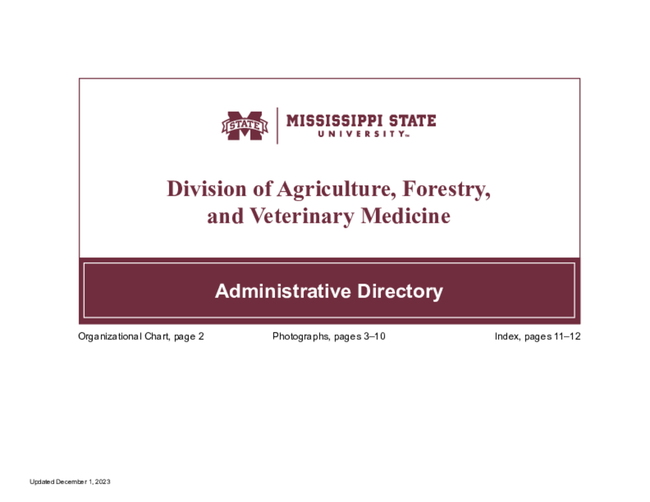About Mississippi 4-H
What is the mission of 4-H?
Mississippi 4-H creates supportive environments for young people and adults to reach their fullest potential through Positive Youth Development. In support of this mission, we will:
- Provide formal and non-formal community-focused experiential learning
- Develop skills that benefit young people throughout life
- Foster leadership and volunteerism in 4-H'ers and adults
- Build internal and external partnerships for programming and funding
- Strengthen families and communities
- Use research-based knowledge and land-grant system to provide quality programming for young people and adults.
The 4-H Youth program strives to improve the quality of life for Mississippi 4-H'ers by developing the potential of young people and by providing "hands-on" (experiential) educational programs. Program priorities identified include leadership development, life skills training, developing positive self-esteem, and empowering volunteers. Programs are delivered through local county Extension offices to volunteer leaders. Learn more about how to join.
The 4-H Symbol
4-H is best identified by its green four-leaf clover with an H on each leaf. The four Hs on this emblem stand for Head, Heart, Hands, and Health. These words emphasize the basis of the four-fold development of young people involved in 4-H.
Head: 4-H'ers focus on thinking, making decisions, and understanding and gaining knowledge.
Heart: 4-H'ers are concerned with the welfare of others and accept the responsibilities of citizenship and developing attitudes and values.
Hands: 4-H'ers use their hands to learn new skills and develop pride and respect for their own work.
Health: 4-H'ers develop and practice healthy living physically, mentally, spiritually, and socially.
The Four Essential Elements of 4-H
Mastery - By exploring 4-H projects and activities, 4-H'ers master skills to make positive career and life choices. 4-H provides a safe environment to make mistakes and receive feedback, and young people can discover their capabilities while meeting new challenges.
Generosity - By participating in 4-H community service and citizenship activities, 4-H'ers can connect to communities and learn to give back to others. These connections help young people find and fulfill their life's purpose.
Independence - By exercising independence through 4-H leadership opportunities, 4-H'ers mature in self-discipline and responsibility, learn to better understand themselves, and become independent thinkers.
Belonging - Through 4-H, young people can develop long-term consistent relationships with adults other than their parents and learn that they are cared about by and connected to others. 4-H gives young people the opportunity to feel physically and emotionally safe in a group setting.
4-H History
4-H grew out of the progressive education movement in America in the late 1800s and early 1900s. Rural school principals and superintendents wanted to teach their students about the material they would need to succeed in the business world.
At the same time, agricultural colleges and experiment stations were accumulating scientific knowledge that could improve productivity and the standard of living for farmers, but farmers showed little interest in these "book farming" methods. These professors thought that teaching farmers' children improved agricultural methods might allow the information to reach the farmers.
Rural school principals and superintendents teamed with agricultural college researchers to form corn clubs in most eastern and southern states at this time.
W. H. "Corn Club" Smith was instrumental in forming Mississippi's first corn clubs. In 1907, Smith received a franking privilege and a salary of $1 per year from the United States Department of Agriculture. This was the first time the USDA had been involved in a youth program and established a three-way partnership of county, state, and federal governments working together.
While other states had corn clubs before Mississippi, none had the federal partnership Mississippi had. This is the basis of Mississippi's claim to be the birthplace of 4-H.
